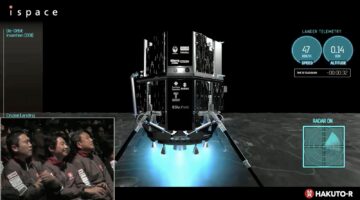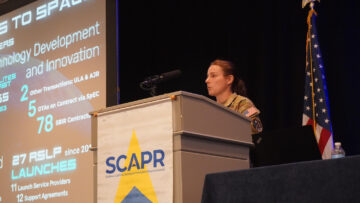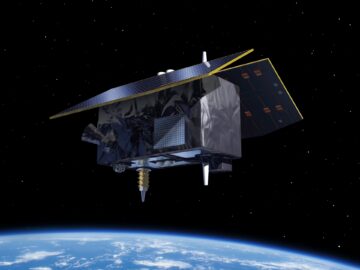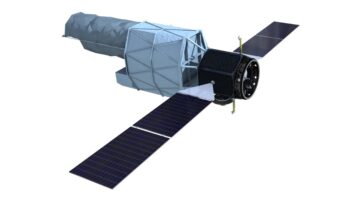
Kendall’s perception of what was needed for success in DoD procurement has largely tracked with what venture and private equity investors have pursued
Recently confirmed Secretary of the Air Force Frank Kendall, a former chief weapons buyer for the entire Defense Department, has returned to the Pentagon charged with leading the Air Force and the Space Force.
When he served as chief of Pentagon acquisitions during the Obama administration, Kendall put great emphasis on competition, fixed price contracting, and on leveraging defense contractors’ internal research and development. As it turns out, this is exactly what is desperately needed to catapult the newly minted Space Force into an American space century, and it cannot come too soon.
It was only about 10 years ago that Kendall upended a moribund space launch industry with a bold move. Leveraging the deep pockets of a cavalier entrepreneur and now household name Elon Musk, Kendall turned Air Force plans for a no-bid contract on its head and insisted on a competition.
Matched with Musk’s relentless ambition, a new era of launch services began as costs fell dramatically – and haven’t stopped. With this historic drop in launch costs, better and more affordable satellite designs are tested, lower orbits are considered, and the seeds for a space renaissance are sown. We are now seeing the fruits of those contrarian moves: reusable rockets and spaceships destined for the moon and Mars are far outpacing their government counterparts by years and by billions, offering America’s first real chance to return to the moon in an affordable way.
If not for the opening he created for SpaceX to compete, where would the U.S. space industry be? Very likely still experiencing continuously increasing launch costs. There would probably be only a handful of space companies, not the hundreds of new ones we have today. We would still be completely dependent on Russian rockets to transport our astronauts to the International Space Station and Russian engines to launch our satellites to orbit. And most importantly, from a national security perspective, far behind the red dragon to the East.
Kendall didn’t start off as a space guy. In fact, while he was studying China’s technological prowess, he developed a series of principles, which he codified in the infamous Better Buying Power tenets and still guide his path today. Kendall’s 36 tenets of Better Buying Power proved to have a far more lasting impact after he retired than many of the “revolutions” attempted by his predecessors.
Most of the tenets pertain to how the Pentagon’s acquisition workforce must manage itself, but some were a clear communique for how the Pentagon must better lead industry to properly supply the Defense Department with affordable, war-winning systems.
Not coincidentally, Kendall’s perception of what was needed for success has largely tracked with what venture and private equity investors have pursued. In recognizing the tremendous opportunity for space systems to enhance civilian life, they have ramped up investment in the commercial space industry by billions since his last tour in the Pentagon.
A key part of Kendall’s orthodoxy revolves around rewarding innovation in industry through fixed price contracting, streamlining and reducing the backlog of audits. In the commercial world, that’s always our preferred approach. It is simple, direct, and dramatically reduces the overhead necessary to satisfy government contracts. Kendall argues that by leveraging industry’s internal R&D efforts instead of funding separate development programs, the military can stretch its dollars to benefit the warfighter.
We know the whole country will benefit from the investment being made in the space economy. Whether it is for price, performance on orbit, or schedule, every new space company is executing a business strategy centered on product performance to win bids, not fancy proposals drafted by professional writers.
Many of today’s next-generation space companies are delivering systems on orbit while remaining small businesses. The rapid adoption of advanced machine learning and autonomous systems often means this new generation of space companies can deliver operational satellites, ground systems and data analytics while remaining small and nimble.
The Pentagon benefited from Kendall’s direction years ago, but the challenges loom much larger for the Space Force. China is breathing down our neck, and now everyone knows it.
Kendall again will challenge the conventional wisdom. His guidance on defense procurement years ago set in motion changes in the space industry that continue to unfold to this day. As the civilian leader of the Space Force, Kendall can provide the right octane to win this new, economic space race against a formidable rival.
Charles Beames is chairman of the SmallSat Alliance, an industry association.
- acquisition
- acquisitions
- Adoption
- Air Force
- Alliance
- American
- analytics
- around
- autonomous
- autonomous systems
- breathing
- business
- businesses
- Buying
- chairman
- challenge
- charged
- chief
- China
- commercial
- Companies
- company
- competition
- continue
- contract
- contracts
- Costs
- data
- Data Analytics
- day
- Defense
- Defense Department
- delivering
- Development
- DoD
- dollars
- Dragon
- Drop
- Economic
- economy
- Elon Musk
- Entrepreneur
- equity
- First
- funding
- Government
- great
- guide
- head
- household
- How
- HTTPS
- Hundreds
- Impact
- industry
- Innovation
- International
- international space station
- investment
- Investors
- IT
- Key
- launch
- lead
- leading
- learning
- loom
- machine learning
- mars
- Military
- Moon
- move
- moves
- national security
- nimble
- Obama
- offering
- Op-ed
- Opportunity
- pentagon
- performance
- perspective
- power
- price
- private
- Product
- Programs
- R&D
- Race
- Renaissance
- research
- research and development
- Rival
- satellite
- satellites
- security
- seeds
- Series
- Services
- set
- Simple
- small
- small businesses
- Space
- Space Force
- space station
- SpaceX
- start
- Strategy
- success
- supply
- Systems
- transport
- u.s.
- venture
- What is
- win
- Workforce
- world
- years









